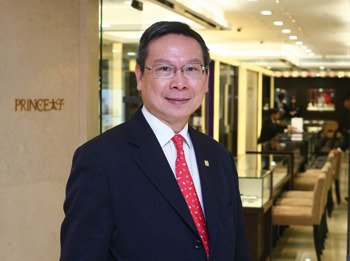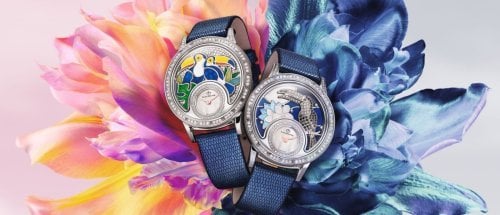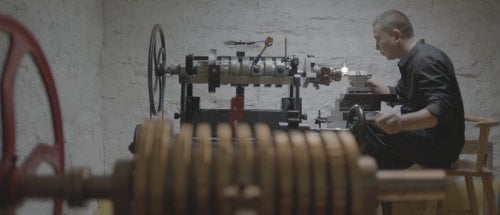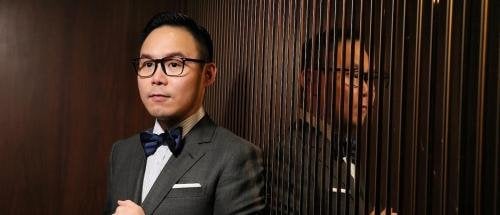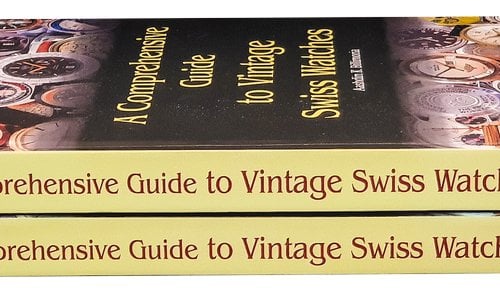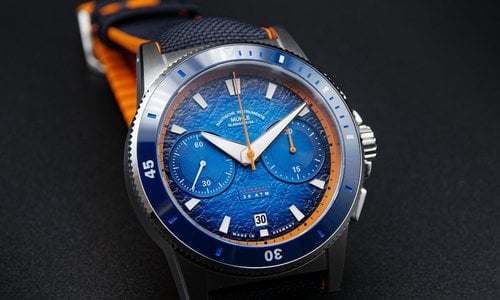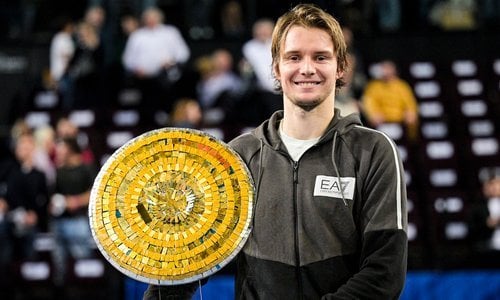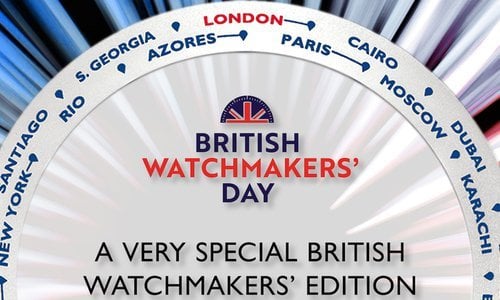Just as a reminder, the “small” city of Hong Kong, all by itself, sells many more watches than all 50 states in the United States combined! Packed full of watches, there is no place in the world where wearing a watch would, however, be so unnecessary. All you need to do is turn your head to read the time on dozens of dazzling dials displayed in the shop windows. You have to see it to believe it. Multi-brand or single-brand stores are omnipresent in all of the touristy areas in this former British colony. Given this situation, what does a chain of watch stores, such as Prince Jewellery & Watch, do to succeed? Joseph Chu, its general manager and also honorary advisor to the Federation of Hong Kong Watch Trade & Industries Ltd., talks about the success of the “Prince” as well as looming difficulties and new challenges appearing on the horizon.
|
Europa Star: How many Prince stores are there?
Joseph Chu: Thirty in Hong Kong, two in mainland China—one in Guangzhou and one in Shanghai. In addition, we have two in Macao, plus six Omega boutiques. In all, Prince has 40 points of sale.
ES: So, how is business?
JC: Really not bad, not bad at all, because we can count on our 28 years of experience. Since Hong Kong became a special administrative region (SAR), which is open to Chinese consumers, we have increased our points of sale.
ES: But the winds are changing. Beijing recently increased the tax on luxury products imported from Hong Kong, inciting the Chinese to buy in China…
JC: Ninety per cent of our clients come from mainland China. There are several reasons for this, beginning with the price. In China, you have to add the import tax plus the “luxury” tax, which still makes our watches 20 to 30 per cent less expensive. Some brands try to reduce the difference, which explains why some models have the same price in China and Hong Kong, except that in China, the price is marked in Chinese yuan, while in Hong Kong it is marked in Hong Kong dollars. This means an exchange rate differential of 18 per cent in our favour. But, purchasing a watch in Hong Kong is also a question of trust since the client is sure he is not buying a counterfeit or a used watch. Finally, our staff can advise the client more professionally.
ES: Yet, Chinese citizens are forced to pay the tax at the border…
JC: Officially, yes, but if they declare nothing at customs and wear the watch on their wrist, it is OK. This is why the watch is purchased without its packaging.
ES: A buyer who comes to Hong Kong for the first time is literally overwhelmed by the number of watch stores. How do you make the prospective client come to your store rather than a competitor’s?
JC: Previously, a client would go from one store to another to try and get the best discount. For a while now, however, brands have been exerting a “discount control” over their products and they carefully monitor the actual sales prices. We can freely offer up to a 10 per cent discount, but beyond that, the seller is subject to a penalty. And, if the seller continues to ignore the discount controls, the brand may revoke his contract and the store will lose its distribution.
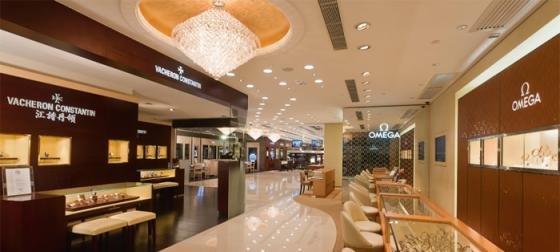
|
ES: How can the brands verify the real sales prices?
JC: They send secret buyers, the famous “mystery shoppers”, sometimes Europeans, even Japanese (laughs) to the stores… We cannot really tell who they are. And, today, believe me, all the sales people offer the watches at the same prices.
ES: With these price controls, doesn’t it make it even more difficult to stand out?
JC: Today, it depends on professionalism, in particular in the high and very high-end segment with expensive watches equipped with grand complications. Here, our experience makes the difference because the salesperson must speak the same language and know how to explain the piece to the client. Our strength is thus a passionate staff, which is responsible for sales. Our sales people also undergo intensive training, especially in terms of politeness. Our store décor is also very appealing and we are creative in our sales concepts. For example, for seven years now we have appeared on TVB, a famous Hong Kong television station, which is available everywhere on cable.
ES: If things are so positive, why then move into mainland China?
JC: We are just being prepared. As I mentioned, some 90 per cent of our clientele are Chinese, but just consider for a moment the possibility that Beijing might decide one day to abolish the taxes. Why would a buyer then come to Hong Kong if he can purchase the same watch at the same price in his own city?
ES: Isn’t this already happening in the Chinese “tax free” zones, such as Hainan island?
JC: Yes, but only for products with a maximum value of 5000 yuan (CHF 750), which is the price of a Tissot. This does not affect us.
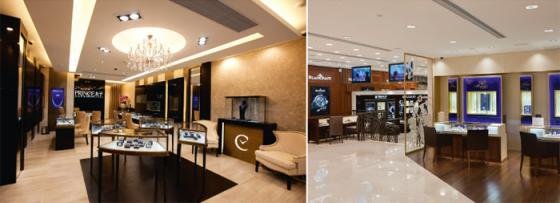
|
ES: Are the relationships good or rather hostile between the various watch distributors in Hong Kong?
JC: For the past two years, I was president of the Federation of Hong Kong Watches Trade & Industries, whose members are the largest distributors in the city. They all compete with each other, of course, but they all know each other and are friends. Each approaches business in his own way, only extreme discounts are forbidden.
ES: What about the explosion in real estate in Hong Kong, whose prices per square metre are already the highest in the world? It seems that many stores, especially in clothing, are leaving the city centres despite the influx of clients?
JC: You have put your finger on our main worry at the present time. When a lease contract is up for renewal, the owner is going to demand an increase of 300 per cent! This explains, in part, the move towards mainland China.
ES: And so, in China, how are your stores doing?
JC: Since 2008, we have seen an annual growth of 30 to 40 per cent, but in 2011, the rate fell to 25 per cent. You know, in every business, the growth rate settles after a while. China has been considered to be the world’s factory with a cheap labour force that can produce anything. But the economic crisis in Europe and the United States is beginning to affect production in China and the Purchasing Manager’s Index (PMI) is already falling. It will take some time before things pick up again. Fortunately, Hong Kong is a favoured tourist destination and we are not directly affected by this phenomenon.
ES: What about after-sales service at Prince? Do you have a repair workshop?
JC: Each Prince store has a small repair service to handle small problems. Luxury brands, however, do not authorise us to open their watches. We have to send them back to the manufacturer, who will give us an estimate for repair.
ES: You sell some sixty brands and twelve prestige brands. How do you manage the displays in your windows?
JC: We represent nearly all the major brands except Rolex and Patek Philippe. Each store has its own arrangement, which depends on its positioning. This is also good for training our salespeople who can gain experience working with the mid-range watches before moving into the haute horlogerie segment. If they did not do this, they would tremble with fear… (laughs).
Age: 28 years
Employees: About 500
Number of stores: 40 (in Hong Kong, China and Macau)
Store surface area (m2): Up to 16,000 at the main store.
Average sales price: Undisclosed, but more than $13,000 in the luxury category.
Brands: More than 60 globally renowned brands and 12 prestige brands: A. Lange & Söhne, Audemars Piguet, Blancpain, Breguet, Chopard, Franck Muller, IWC, Jaeger-LeCoultre, Panerai, Piaget Roger Dubuis, and Ulysse Nardin.
Source: Europa Star October - November 2012 Magazine Issue
See the other articles in our report from the 2012 Hong Kong Watch & Clock Show

